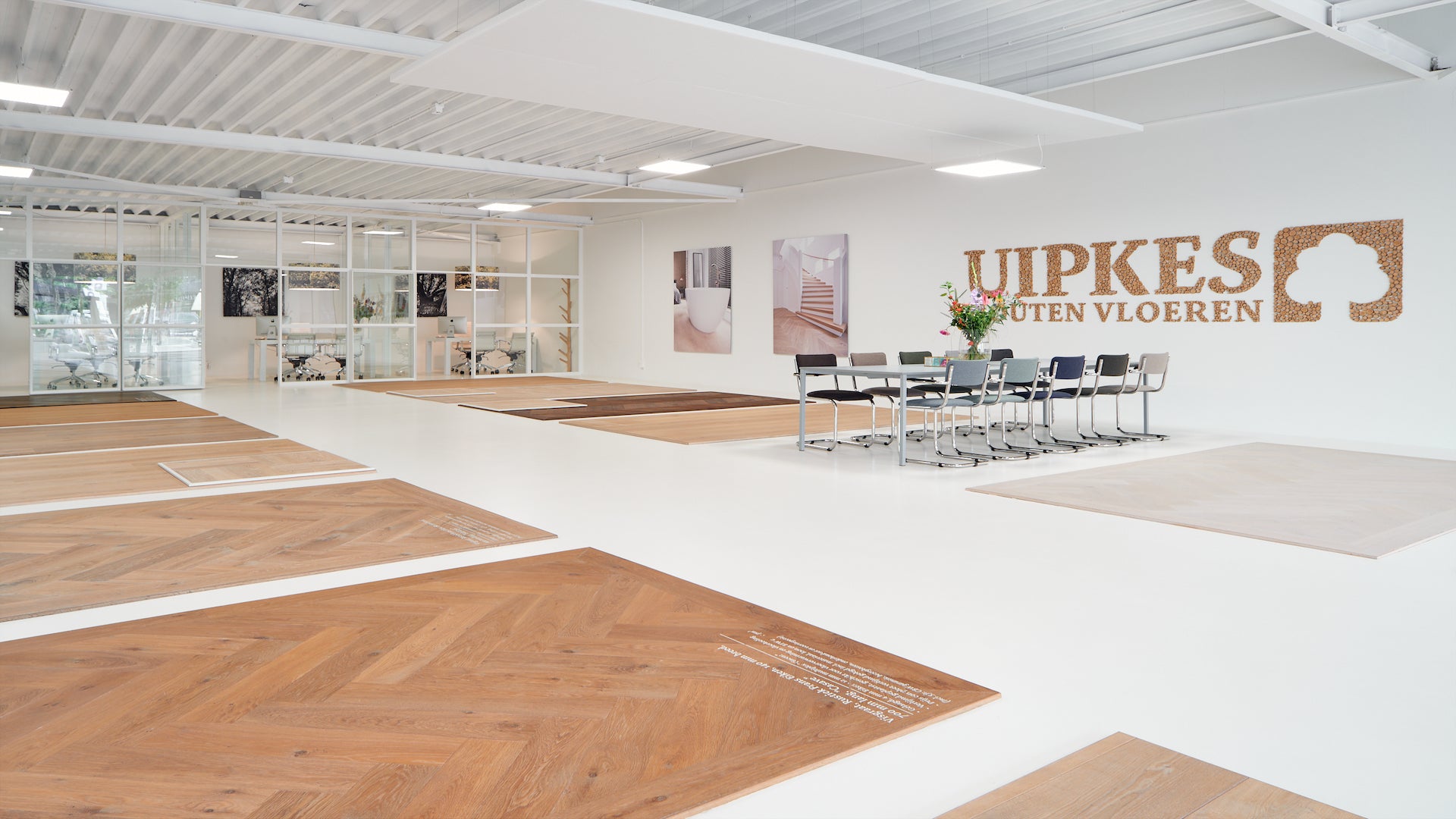Warmtepomp
Immerse yourself in the world of efficient and sustainable heating: Heat pumps. Discover how these innovative technologies move thermal energy, reduce CO2 emissions and provide comfort in diverse environments.
Bezoek de showroom
To arise
The concepts behind heat pumps are more than a century old, but their practical development and implementation mainly started after the Second World War. The energy crises of the 1970s brought increased attention to the technology as people sought more energy-efficient heating methods and ways to move away from fossil fuels.
Operation
A heat pump moves thermal energy from a lower temperature source to a higher temperature destination, against the natural flow of heat. This is done through a cooling cycle, similar to that in a refrigerator. The most common types are air-water, air-air, water-water and ground-water heat pumps.
Characteristics
- Efficiency: Heat pumps are generally very efficient. They use less electricity than the amount of heat they produce.
- Sustainable: They are less dependent on fossil fuels and can use renewable energy sources such as sun and wind.
- Flexibility: In addition to heating, some models can also cool in the summer.
Bezoek de showroom
SWOT Analysis
STRENGTHS (STRENGTHS)
- High efficiency.
- Can both heat and cool.
- Reduces CO2 emissions.
WEAKNESSESS
- High initial investment.
- Sometimes requires additional insulation or adjustments to the home.
OPPORTUNITIES (OPPORTUNITIES)
- Increasing focus on sustainable energy sources can promote adoption.
- Technological advances can increase efficiency and applicability.
THREATS
- Changes in subsidy schemes can influence the attractiveness.
- Emergence of other innovative heating technologies.
Influence on the environment
- Positive: Reduced CO2 emissions compared to traditional heating methods. Less dependence on fossil fuels.
- Possible disadvantages: Depending on the electricity source, there may still be an environmental impact, especially if the electricity comes from non-renewable sources.
USAGE COSTS
- Initial costs: Purchasing and installing a heat pump can be expensive. However, there are often subsidy options available to reduce these costs.
- Operating costs: Running costs are generally lower than with traditional heating systems, mainly due to the high efficiency of heat pumps.
Magazine Vol inspiratie
Magazine aanvragenApply with underfloor heating
Heat pumps are ideal in combination with underfloor heating . The reason for this is that underfloor heating operates at lower temperatures than traditional radiator systems. Heat pumps are most efficient when they heat water to temperatures between 35°C and 45°C, which is perfect for underfloor heating . The result is an evenly heated room with very efficient energy consumption.
Combining engineered wood flooring and underfloor heating, powered by a heat pump, is also an energy-efficient solution. Wooden floors warm up and cool down more gradually compared to other floor types. This means that the heat pump does not have to start every time and you save on your energy bill.
If you are considering installing a heat pump in combination with underfloor heating , it is advisable to consult a professional. This can help you choose the right system for your situation and ensure correct installation. You can also contact Uipkes to have underfloor heating installed . Visit our showrooms for advice.
Types of heat pumps
AIR-AIR HEAT PUMP
Features: These pumps extract heat from the outside air and convert it into warm indoor air via a heat exchanger. They can also work in reverse for cooling.
Advantages:
- Can both heat and cool
- No need for drilling or a water source.
Cons: - Efficiency can decrease at very low outside temperatures.
- Can consume more energy compared to ground-based systems.
AIR-WATER HEAT PUMP
Properties: Extracts heat from the outside air and delivers it to a water circuit.
Advantages:
- Suitable for underfloor heating and radiators.
- No need for drilling or a water source.
Cons: - Efficiency can decrease at very low outside temperatures.
- Can consume more energy compared to ground-based systems.
Water-water heat pump
Properties: Extracts heat from groundwater and delivers it to a water circuit.
Advantages:
- Very efficient because the temperature of the groundwater remains relatively constant.
- Can also provide cooling.
Cons: - Requires access to groundwater.
- Possible regulations and permits required.
GROUND-WATER HEAT PUMP
Properties: Uses heat from the ground through a network of pipes filled with a liquid.
Advantages:
- Higher efficiency because the ground temperature varies less than air temperature.
- Long lifespan.
Cons: - Installation is more expensive due to soil drilling.
- Larger garden or area required for horizontal systems.
Bezoek de showroom
Hybrid heat pump
Features: Combination of an air-water heat pump and a traditional central heating boiler.
Advantages:
- Can switch between gas and electricity depending on costs and temperature.
- Less chance of capacity shortage during cold days.
Cons: - Still partially dependent on fossil fuels.
- More expensive than a standard air-water heat pump.
CO2 HEAT PUMP
Properties: Works with CO2 as a coolant.
Advantages:
- Very efficient at higher temperatures.
- Suitable for hot tap water.
Cons: - More complex in design and maintenance.
- May be more expensive than other options.
ABSORPTION HEAT PUMP
Properties: Uses heat (e.g. from gas or solar energy) instead of electricity.
Advantages:
- Can run on renewable sources such as solar energy.
- Reduces electricity consumption.
Cons: - Often larger and more complex.
- Less common, so can be more expensive to purchase and maintain.
Frequently Asked Questions
What is the difference between an air-to-air and an air-to-water heat pump?
An air-to-air heat pump extracts heat from the outside air and converts it into warm air indoors, while an air-to-water heat pump extracts heat from the outside air and delivers it to a water circuit, such as underfloor heating or radiators.
Are heat pumps efficient at low outside temperatures?
While the efficiency of air-based heat pumps can drop at very low outdoor temperatures, ground-based or water-to-water heat pumps generally remain efficient due to the more constant temperatures of groundwater or the earth.
Why should I choose a ground-water heat pump?
Ground-water heat pumps offer a higher efficiency due to the less variable ground temperature compared to air. They also have a long lifespan, although initial installation may be more expensive.
What is a hybrid heat pump?
A hybrid heat pump combines an air-water heat pump with a traditional gas central heating boiler. This allows the system to switch between gas and electricity depending on cost and temperature.
Are there heat pumps that are specifically suitable for heating tap water?
Yes, CO2 heat pumps are particularly efficient at producing higher temperatures, making them suitable for heating tap water.
What is an absorption heat pump?
An absorption heat pump uses a heat source (such as gas or solar energy) instead of electricity to evaporate a refrigerant, making it less dependent on the electricity grid.
Do I need a large garden for a ground-water heat pump?
Horizontal systems may require a larger yard or area. However, there are also vertical systems where pipes go deeper into the ground, which requires less horizontal space.
- Choosing a selection results in a full page refresh.
- Opens in a new window.

